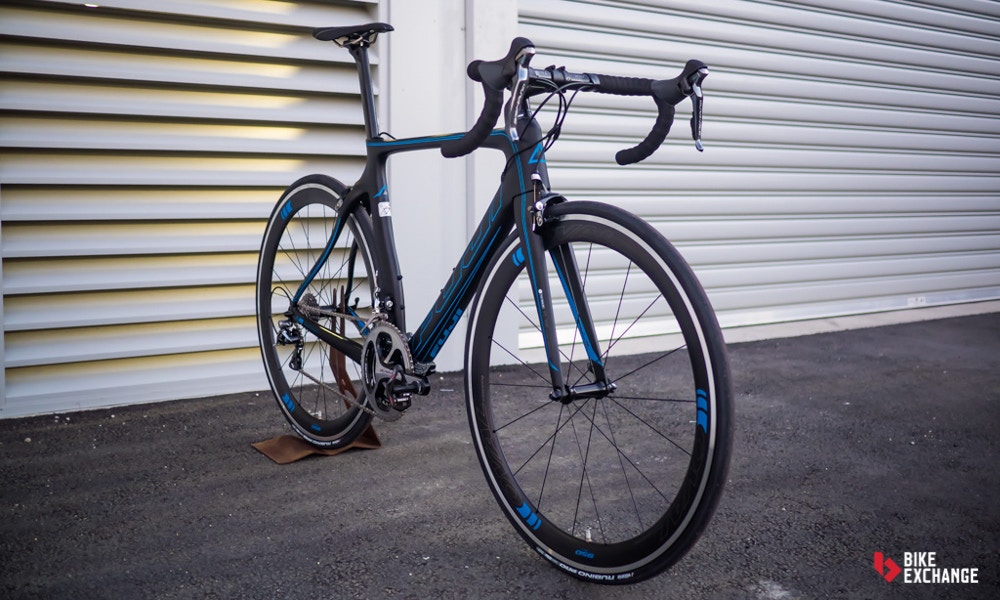The Fuji Transonic was first piloted at the Tour de France in 2014 by the NetApp-Endura Team and most recently by Team Caja Rural-Seguros RGA. The latter recording 17 victories last season and five this year, including stage wins at the Tour of Turkey and Tour of Asturias.
Who’s it for: Speed merchants. Competitive riders that want an aero advantage but don’t want to sacrifice comfort.
Stand-out features: Full Shimano Dura-Ace groupset. Thick, asymmetrical chain stays with larger cross-sectional tube profiles maximizing stiffness.


CyclingTips’ Australian tech editor Matt Wikstrom will be testing and reviewing the Fuji Transonic 1.3 over the coming weeks. We were able to get our hands on the bike for a brief moment to take some shots and get an idea of what this bike is all about before Matt’s full review is released on CyclingTips.
The Transonic was created on the back of a lot of learnings from the Fuji’s most recent time trial bike, the Norcom. Fuji spent a great deal of time testing and refining the Norcom’s tube profiles in the wind tunnel to come up with the most aerodynamic design possible. The result was a bike that was ‘18% faster across the most common yaw angles’ than Fuji’s previous time trial iteration the D6. The Norcom’s tube profiles are the foundation of the Transonic but have been refined to provide greater stiffness and improved handling.
The bike has many modern aero features: direct mount calipers, integrated seatpost clamp, internal cables, contoured seat tube to hug the rear wheel. But, no fancy integrated bar and stem. Mechanics will rejoice at the sight of direct mount caliper brakes that are easy to maintain and don’t compromise on stopping power like some aero bikes do. Fuji haven’t totally forgone the aero approach to brakes, creating a partial seat stay cut-out which contours around the rear brake keeping it hidden from the wind.
For the review, Matt is riding the 1.3 version of the Transonic featuring mechanical Shimano Dura-Ace, Oval Concepts components including the Oval Concepts 950F alloy / carbon hybrid wheelset. The 1.3 frame is constructed of C10 Ultra high-modulus carbon fiber, the same as the top-of-the-line Transonic SL, and features the same thin seat stays to aid compliance and oversized chain stays to improve power transfer.
The bikes cross-sectional frame tube profile is larger than some other aero bikes in an attempt to improve stiffness, further boosted by a huge bottom bracket area and chunky asymmetrical chain stays. The WorldTour trend towards wider tires hasn’t been lost on Fuji either, the Transonic is claimed to fit up to 28mm tires.
With one ride on the clock, Matt teased some first impressions – “A quick peek at Tour’s wind tunnel testing confirmed my early impressions from my first ride this morning: the bike trails the market leaders but is still it bit quicker than a traditional road bike."
“The Tron colour scheme is cool, so too the old-school curved seat tube,” added Matt.
Despite the large tube profiles and deep wheelset, the bike weighs in at a healthy 7.34kg for a medium / large (56cm) and comes with a price tag of $5,190. The size ranges from a XS/S 46cm right up to a L/XL 61cm.







